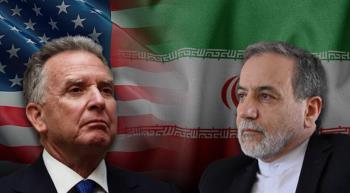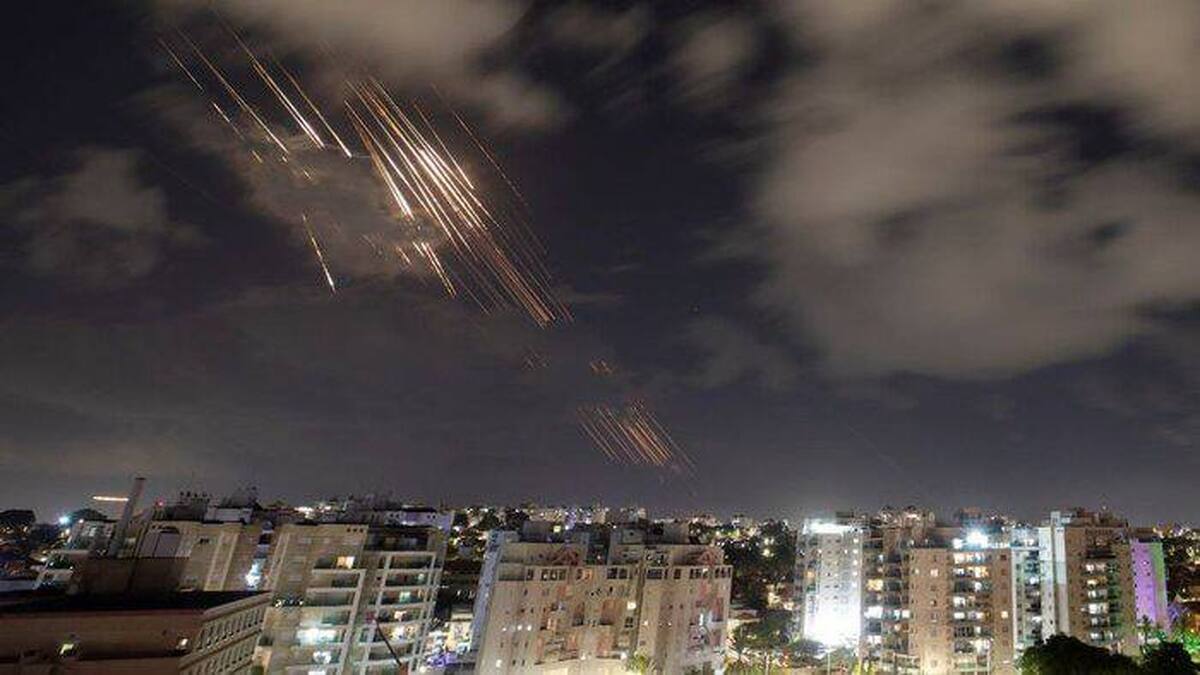Alwaght- A new Operation True Promise by Iran is on its way. This is the summary of the comments of the senior Iranian officials over the past few days after the Supreme Leader Ayatollah Sayyed Ali Khamenei's speech on the anniversary of capture of the US embassy in Tehran as Washington's spying nest in 1979, which initiated a day in national calender as the "National Day of Fight against Global Arrogance." In his meeting with thousands of school and university students, the Leader asserted that the enemies will receive "tooth-breaking" response for their anti-Iranian aggression.
Iran had warned after Operation True Promise II that if the Israeli regime seeks to respond to the legitimate action of IRGC in revenge for the martyrdom of the leaders of Hamas and Hezbollah and Iran's senior military advisor General Abbas Nilforoshan in Lebanon, it will react much more strongly and now it seems that the green light has been issued for Operation True Promise III and it is a matter of time to see a devastating attack.
Israeli miscalculation; deterrence is not the walk-back from war
If the air attack of the Israeli regime, based on the objective evidence and the statements of the officials of the Islamic Republic of Iran, was only an empty pretense and Iran's defense readiness thwarted this attack, then why did Tehran, which has repeatedly stated that it does not seek the expansion of regional conflict and escalation of tension, decide to respond? This is a question that may be interpreted as a conflict in the positions of the Iranian government, at least by the foreign-based opposition media.
In two aspects we can show that there is no conflict between a decision to take a new punitive action by Tehran against Tel Aviv and the Iranian claim that the Israeli October 26 attack was ineffective and Tehran does not want to escalate.
Firstly, though contrary to the US and Israeli planning the air aggression on Iran was thwarted with the least damage to the strategic and military infrastructure and human casualties, the Israeli regime anyway violated Iran's national sovereignty and territorial integrity against the international laws and condemnation and claimed responsibility for this aggression, giving Iran the retaliation right. With the new response, the Islamic Republic will show the world, especially its enemies, that it does not close eyes to violation of its security and national sovereignty and is capable of responding to any hostility and punishing the perpetrators.
Secondly, Iran is now engaged in a cognitive warfare beside military confrontation with the Israeli enemy and its backers and needs to remind the Israeli leaders of their miscalculation and misunderstanding of the Iranian emphasis on the sticking to the deterrence doctrine and avoiding escalation. This miscalculation made Israel fail to take the messages of two Iranian missile operations and make a new mistake by launching new aggression thinking that Iran is afraid of war.
The Islamic Republic of Iran and the Israeli regime have been engaged in a behind-the-scenes intelligence and security war for many years, but the Israeli attack on the Iranian consulate building in Damascus (which is considered part of the country's territory) and the martyrdom of several IRGC commanders on April 1 opened a new chapter of this confrontation, giving Iran every reason to review its military deterrence rules against this regime and to give a proportionate response to the behavioral change of the leaders of Tel Aviv by conducting first Operation True Promise.
However, the Israelis did not learn from the tough slap their received from Iran, and embarking on an assassination campaign targeting Hezbollah and Hamas leaders and commanders, they sought to reverse their strategic losses with tactical gains. This triggered a new Iranian missile operation meant to fix the deterrence equation.
Therefore, not responding or not showing a will for response, in the face of the enemy's attack, even if it caused little damage, is actually playing into Israel's hands, and as a result, it will be Tel Aviv that can claim to have imposed its favorable equation of deterrence on the Islamic Republic. In this case, with ease and on the strength of the American support, Israel will continue the war and crimes against the Iran-led Axis of Resistance without worrying about Tehran's interference. Therefore, Operation True Promise III will serve the aim of defeating Israel in a battle of wills.
Bluff of preemptive attack as Israel lives fear of Iranian strike
The Israelis, who witnessed their own vulnerability after Iranian missile attacks, are now shocked to hear Iranian warnings about certainty of third regretful Iranian response to the Israeli attack. Meanwhile, amid their extreme fear, they raise possibility of preemptive action against Iran. Ex-Israeli Defense Minister Avigdor Lieberman over the past few days called for preemptive attack, saying that Israel should not wait Iranian attack.
One of the main pillars of the Israeli military doctrine has always been the principle of warning or initiative, which says that if the principle of deterrence is not applied to the enemy and it wants to attack us, we will find out sooner, and our officials and intelligence agencies will warn us and we will make a decision. Complementing this principle is another principle: Dragging the war into the enemy's territory. This means that now the Israelis have returned to the traditional principles of their military doctrine in the face of Iran. But the reality is that not now but after the irreparable blow of Hamas under Operation Al-Aqsa Storm of October 7, Ben-Gurion's military doctrine collapsed, and each time the Israeli army claimed destruction of military capabilities of Hezbollah, Hamas, and Yemen's Ansarullah with preemptive attacks, its plans immediately backfired as the Israelis themselves acknowledge.
Iran's military authorities also announced that all the damage caused to the defense systems in the Israeli attack were quickly mended and that no serious damage was inflicted on the defense power of the Islamic Republic. However, any preemptive action will indeed motivate Iran to hit the occupied territories way stronger than what is now considered for response.
Futile US threats
Another issue is the US carrot and stick game that on the one hands wants to offer an umbrella of protection to Israel against expected Iranian attack and dissuade Iran from its operation through military drills, force deployment, and flexing muscles with its heavy weapons and on the other hand push Iran to self-restraint and a deal with fake promises and efforts to contain the crisis and to end the Israeli war on Gaza and Lebanon.
In this case, too, the cognitive warfare requires Iran not to allow a possible war control deal takes shape according to the US calculations. On the one hand, the US has never been out of Gaza and Lebanon wars, and in addition to providing arms to Tel Aviv, it has been fully involved in advancing military plans in Gaza and Lebanon and even the US air aggression on Iran as the operational arm in the Israel war command. Therefore, what deters the US-backed warmongering of the hardliners of Tel Aviv is not a show of self-restraint by Iran and trust in the US promises, but adoption of an active deterrence-based offensive political and military strategy.
On the other hand, the US psychological warfare launched around deployment to Israel of THAAD air defenses or strategic weapons like B-2 and B-52 bombers and submarines has not even checked small resistance groups' fight against the Israeli occupation. Actually, over the past year of Gaza war, the Resistance camp has observed all of the US capacity for military support to Israel, and, indeed, in the eyes of the Resistance camp, expansion of war will have heavy costs for the US interests in the region and the largely collapsed Israeli security.



























